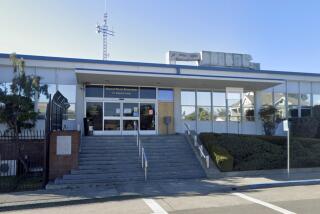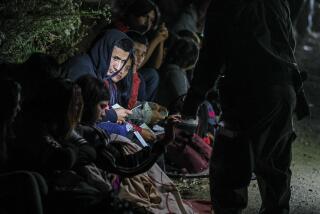ACLU Seeks Data on Sweeps
More than a month after U.S. Border Patrol sweeps in Ontario and Corona led to the deportation of 154 suspected illegal immigrants, the ACLU on Tuesday filed a formal request with the federal government demanding information about why and how the operations were carried out.
“The information provided by the [Customs and Border Patrol] has been limited at best and contradictory at worst,” said Ranjana Natarajan, an attorney with the American Civil Liberties Union in Los Angeles.
“Given the confusion and fear surrounding the CBP’s actions, it is critical that the community have a clear understanding of what exactly took place.”
Border Patrol spokesman Mario Villareal said he had not seen the request.
“What they’re asking for, I want to say, we made available in a public forum,” he said. “The Freedom of Information Act is there for requests such as this. We’ll look closely at what they’re requesting and make a determination.”
He said 154 people were arrested in Ontario and Corona during the first two days of the operation in early June.
News of the arrests aroused fear in Latino neighborhoods in Riverside, San Bernardino and Los Angeles counties.
Residents reported being stopped outside supermarkets, at swap meets in areas such as Pasadena and in downtown Los Angeles. But a Border Patrol official insisted that agents made no arrests other than those in Ontario, Corona and San Diego County.
“What we’ve heard from the community differs significantly from what the government said was happening,” Natarajan said. “I’m just hoping that we can get some real information to share with the community.”
In its three-page Freedom of Information Act request, the ACLU asks for the total number of people who were questioned and detained, the number removed from the U.S. and the countries to which they were deported. The ACLU also wants to know if people questioned by Border Patrol agents were in cars or on foot.
“We still have very grave concerns that some people’s rights might have been violated and there might have been some use of racial or ethnic profiling,” Natarajan said.
The ACLU is also requesting all tips, intelligence and factual basis for the arrests, and all records from federal, state or local agencies authorizing the use of roving patrols. The group also is seeking records detailing the involvement of any state or local enforcement agency.
More to Read
Sign up for Essential California
The most important California stories and recommendations in your inbox every morning.
You may occasionally receive promotional content from the Los Angeles Times.










